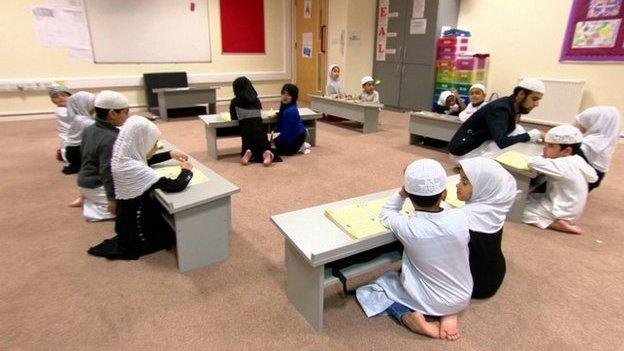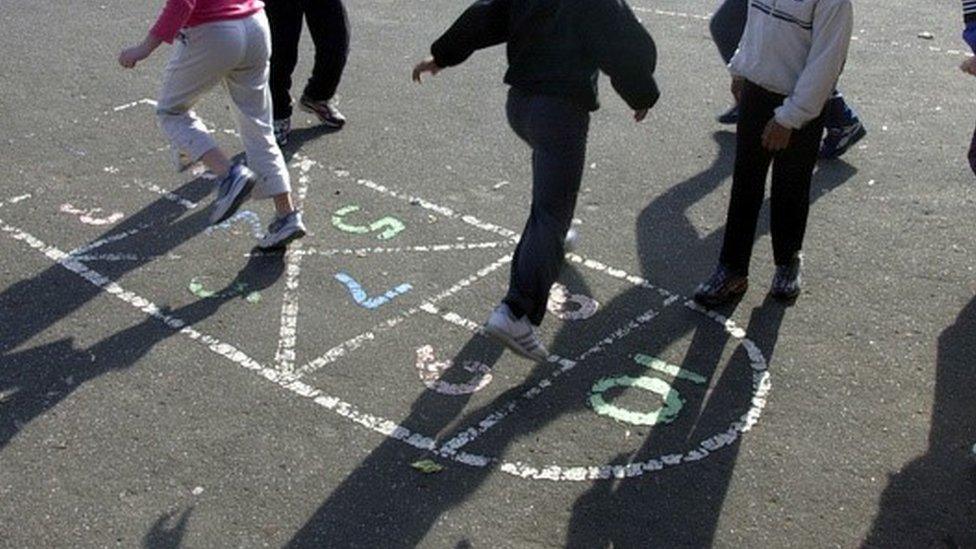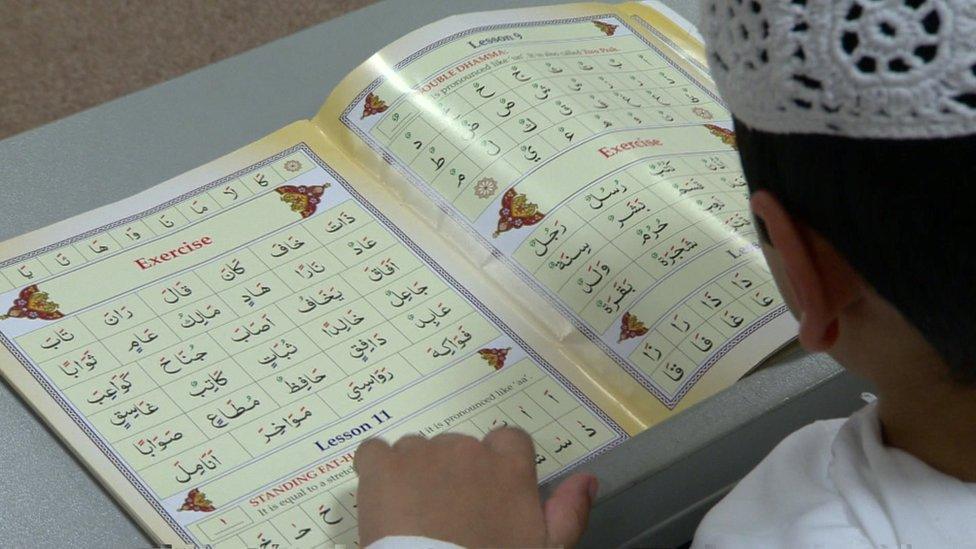Mosques oppose madrassa registration
- Published

The government is proposing that madrassas would have to be registered and inspected
An organisation of mosques says it "unequivocally" rejects government proposals to require madrassas in England to be registered and inspected.
The Northern Council of Mosques, representing 400 mosques, says this "encroaches" on religious freedom.
The Muslim supplementary schools would have to comply with plans for tighter scrutiny over "out-of-school education settings" if the plans were introduced.
The government's consultation on the proposals closes on Monday.
And the Department for Education has indicated that it makes "no apology" for wanting to ensure children are properly protected.
David Cameron has warned that "teaching intolerance" had to be stopped.
But in a response, the mosque leaders say the plans are based on "the flawed assumption that radicalisation takes place within some madrassas" and that such "control and monitoring" over lessons would "effectively lead to a form of state sanctioned religious expression".
They say the registration and inspection plan "unduly encroaches on the legitimate right of faith providers to teach their children their faith".
The mosque leaders also take issue with the use of the term "extremism" saying it is vaguely defined and "potentially all-encompassing".
'Undesirable teaching'
In his speech to the Conservative party conference, the prime minister called for such places of religious education to be registered and open to inspection, in a speech warning against the risk of extremist teaching.
He claimed that in some madrassas, children were "having their heads filled with poison and their hearts filled with hate".
This was followed by plans from the Department for Education for the compulsory registration of out-of-school places of education, external, such as madrassas, which currently operate outside of the oversight of the authorities.
It would give inspectors powers to ensure that children were "properly safeguarded" and would allow sanctions to be imposed, such as barring individuals from teaching or shutting down such centres where failings were found.
As well as stopping "unsuitable staff" and "undesirable teaching" it would mean preventing corporal punishment.
Such regulation would apply to places where children were regularly taught six to eight hours a week - and not to occasional or less frequent sessions.
But the Northern Council of Mosques, with a membership in places such as Bradford, Manchester and Rochdale, says such an approach will be counter-productive and will "alienate" faith groups.
Right to teach beliefs
The mosque group say that young people need to be able to debate ideas openly and "faith providers may simply avoid such open conversations with children for fear of being labelled extremists themselves".
There are believed to be about 2,000 madrassas in the UK. They teach Muslim children subjects such as Arabic to recite the Koran and lessons in the principles and practices of their faith.
A Department for Education spokesman said: "We recognise many out-of-school education settings do a great job in supporting children's education and development but, without proper oversight, there is a risk that some children attending them may be exposed to harm, including from extremism.
"We want to hear the views of all interested parties about how settings which children attend intensively might be required to register so that they can be inspected in a way that does not place unnecessary burdens on good providers."
As well as extra scrutiny for part-time, out-of-school settings, Ofsted has called for illegal, unregistered schools to be shut down.
Ofsted chief Sir Michael Wilshaw said inspectors had found "squalid" conditions in places teaching children for more than 20 hours a week, which were not registered or accountable to inspectors, local authorities or the Department for Education.
- Published7 October 2015

- Published26 November 2015
